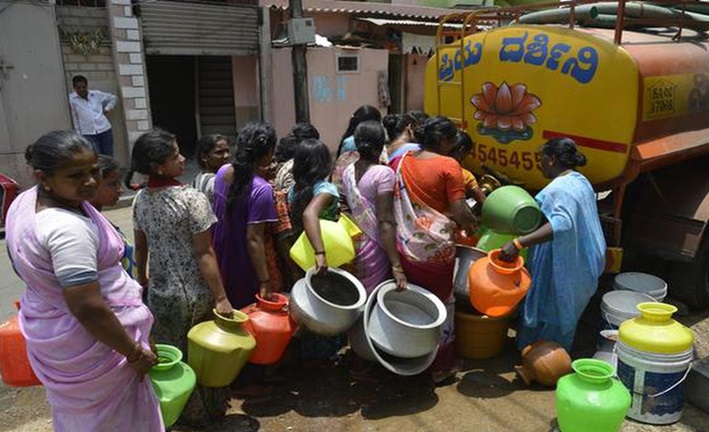In the midst of India’s bustling tech hub, Bengaluru, a quiet crisis is unfolding. As the city battles an escalating drought, tech professionals are fleeing, and businesses are grappling with the harsh reality of dried-up wells and water shortages. This troubling trend mirrors a historical tragedy: the decline of the once-prosperous civilization in the Indus Valley, where a prolonged drought forced people into simpler, impoverished lives.
The situation is dire. More than half of Bengaluru’s wells have dried up, leaving residents and businesses reliant on water tankers. Nearby Kerala, with its abundant monsoon rains, has even suggested that Bengaluru’s companies relocate, highlighting the stark contrast in water availability.
This isn’t just a local issue—it’s a national concern. Southern states like Karnataka, Kerala, Telangana, and Tamil Nadu contribute significantly to India’s GDP, driven by their robust technology and manufacturing sectors. However, these states lack the water reserves of the Himalayas, making water scarcity a constant threat. Cities like Chennai and Hyderabad have faced similar water crises in recent years, underscoring the urgent need for action.
Unfortunately, existing policies are failing to address the root of the problem. The majority of India’s water, a staggering 85%, is allocated to agriculture, leaving little for urban areas. This imbalance is exacerbated by water-intensive crops like sugarcane, grown extensively in Karnataka and Tamil Nadu. Government incentives and subsidies have fueled this unsustainable practice, leading to disputes and straining water resources further.
Coal-fired power plants are also major culprits, consuming vast amounts of water for cooling purposes. This not only depletes water sources but also contributes to electricity consumption, further stressing the power system.
Addressing these challenges will require difficult compromises, particularly in agriculture and power generation. With general elections approaching, the window for meaningful change is narrowing. Failure to act could jeopardize the prosperity of cities like Bengaluru and Hyderabad, undermining their appeal to professionals and hindering urban development.
India must learn from history and prioritize the needs of its thirsty cities to thrive in the face of climate change. By taking decisive action now, India can ensure a sustainable future for all its citizens.
(Source: Associated Press | Times of India | Japan Times | Fair Observer)









